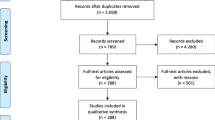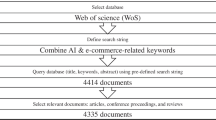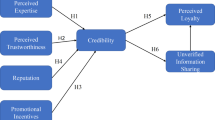Abstract
Online healthcare community discussion forums facilitate patients and healthcare seekers to exchange knowledge on health-related issues. Mining the enormous volume of the user generated contents in these forums may provide valuable information regarding the health. The contribution of the responses in par with the question asked needs to be analyzed to provide meaningful solutions. Among the answers given by the repliers the answer that contributes knowledge for the health seeker or patient needs to be identified by analyzing the contents of the replies. The knowledge contribution of the reply is measured using the metrics such as Quality of information, Emotional support, and Source Trustworthiness, Replier Competition and Recipient Involvement. A knowledge Contribution Model proposed in this research work aims to determine the answers that could be adopted from the set of answers provided for each question. The pregnancy data from health-care community, Medhelp, is taken-up for analysis. Using Knowledge contribution model, the most influential answer that may be adopted from the given answers is determined by analyzing contents of the answers using text mining techniques. The SVM-RBF Kernel classification algorithm is applied to categorize the answers as adopted and non-adopted from the evaluated metrics.


Similar content being viewed by others
References
Neal L, Lindgaard G, Oakley K, Hansen D, Kogan S, Leimeister JM, Selker T (2006) Online health communities. Proceedings of CHI '06 Extended Abstracts on Human Factors in Computing Systems: 444–447, Montréal, Québec, Canada, ACM New York, NY, USA
Biyani P, Caragea C, Mitra P, Yen J (2014) Identifying emotional and informational support in online health communities. Proceedings of COLING 2014, the 25th International Conference on Computational Linguistics: Technical Papers, pages 827–836, Dublin, Ireland
Chuang KY, Yang CC (2012) A study of informational support exchanges in medhelp alcoholism community. In: Yang SJ, Greenberg AM, Endsley M (eds)Proceedings of the 5th international conference on Social Computing, Behavioral-Cultural Modeling and Prediction (SBP'12). Springer-Verlag, Berlin, Heidelberg, 9–17. https://doi.org/10.1007/978-3-642-29047-3_2
Im EO, Chee W An online forum as a qualitative research method: practical issues. Nurs Res 55(4):267–273
Jin J, Yan X, Li Y, Li Y (2016) How users adopt healthcare information: an empirical study of an Online Q&a Community. Int J Med Inform 86:91–103
Monnier J, Laken M, Carter CL (2002) Patient and caregiver interest in internet-based cancer services. Cancer Pract 10(6):305–310
Xiao N, Sharman R, Rao HR, Upadhyaya S (2014) Factors influencing online health information search: an empirical analysis of a national cancer-related survey. Decis Support Syst 57:417–427. https://doi.org/10.1016/j.dss.2012.10.047
Rolls K, Hansen M, Jackson D, Elliott D (2016) How health care professionals use social media to create virtual communities: an integrative review. J Med Internet Res 18(6):e166. https://doi.org/10.2196/jmir.5312
Overberg R, Otten W, de Man A, Toussaint P, Westenbrink J, Zwetsloot-Schonk B (2010 Mar 9) How breast cancer patients want to search for and retrieve information from stories of other patients on the internet: an online randomized controlled experiment. J Med Internet Res. 12(1):e7. https://doi.org/10.2196/jmir.1215
Petty RE, Cacioppo JT The elaboration likelihood model of persuasion. Communication persuasion. Springer Series in Social Psychology: 1–24
Akesson KM, Saveman BI, Nilsson G (1986) Health care consumers' experiences of information communication technology: a summary of literature. Int J Med Inform 2007 76(9):633–645
Wicks P, Frost J (2008) ALS patients request more information about cognitive symptoms. Eur J Neurol 15:497–500
Sussman SW, Siegal WS (2003) Informational influence in organizations: an integrated approach to knowledge adoption. Inform Syst Res 14:47–65
Author information
Authors and Affiliations
Corresponding author
Additional information
Publisher’s note
Springer Nature remains neutral with regard to jurisdictional claims in published maps and institutional affiliations.
Rights and permissions
About this article
Cite this article
Prabha, M.S., Sarojini, B. Online Healthcare Information Adoption Assessment Using Text Mining Techniques. Mobile Netw Appl 24, 1160–1165 (2019). https://doi.org/10.1007/s11036-019-01253-3
Published:
Issue Date:
DOI: https://doi.org/10.1007/s11036-019-01253-3




